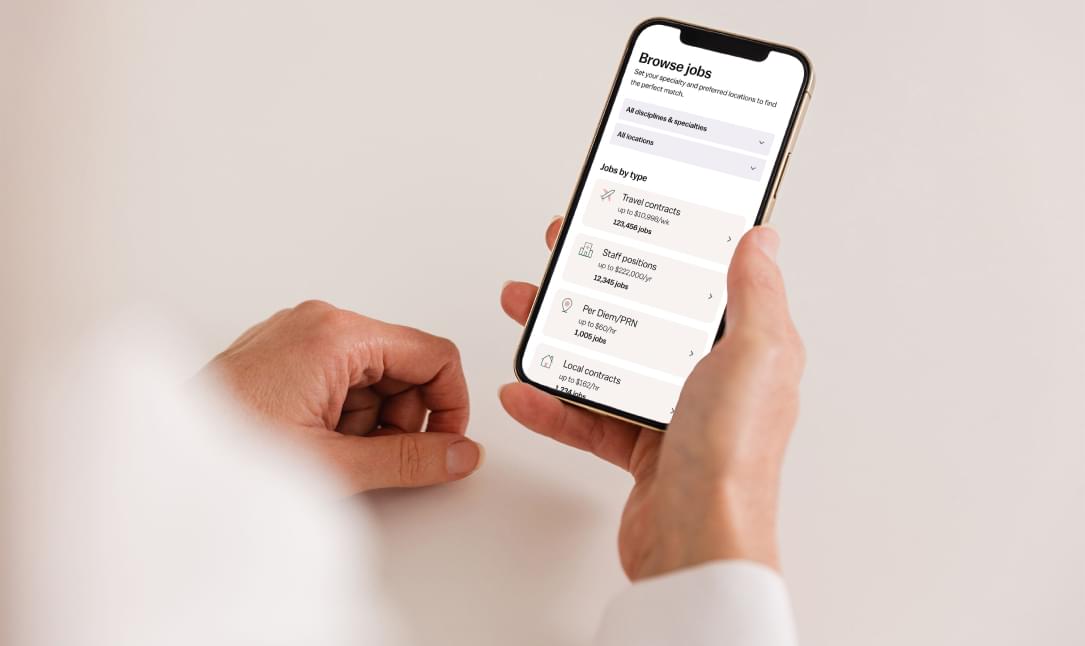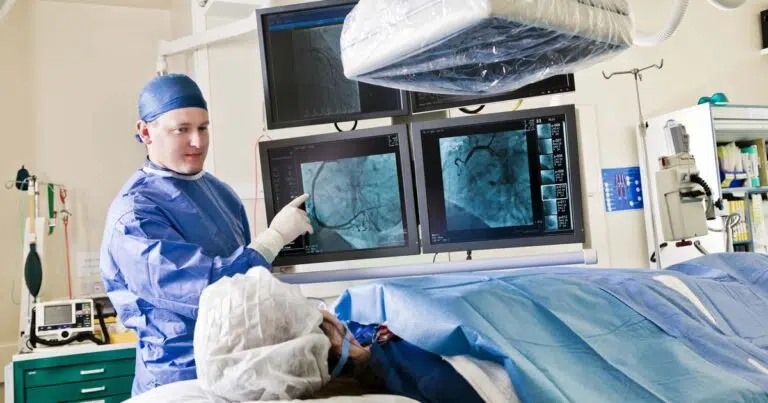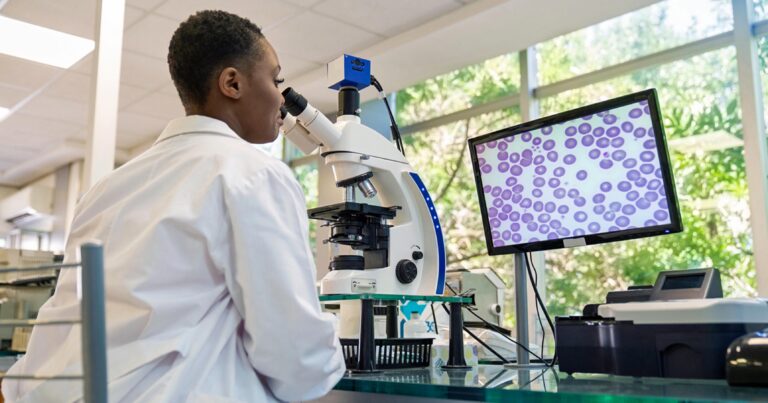Travel EP Tech Jobs
- 411 open jobs
- Jobs added hourly
Highest paying
Travel Electrophysiology Technician
- Rochester, NY
- LanceSoft
- 4x10 hrs, Days
$3,666/week
Travel Electrophysiology Technician
- Rochester, NY
- Solomon Page
- 4x10 hrs, Days
$3,620/week
Travel Electrophysiology Technician
- Albuquerque, NM
- Nurse First
- 4x10 hrs, Days
- Referral Bonus
$3,573/week
Travel Electrophysiology Technician
- Rochester, NY
- PHP
- 4x10 hrs, Days
$3,553/week
Travel Electrophysiology Technician
- Seattle, WA
- Vastek Group
- 4x10 hrs, Days
$3,537/week
New this week
Travel Electrophysiology Technician
- Rochester, NY
- LanceSoft
- 4x10 hrs, Days
$3,666/week
Travel Electrophysiology Technician
- York, PA
- Genie Healthcare
- 5x8 hrs
$3,502/week
Travel Electrophysiology Technician
- Sarasota, FL
- Cross Country Allied
- 3x12 hrs, Days
$3,400/week
Travel Electrophysiology Technician
- Albuquerque, NM
- KPG Allied
- 5x8 hrs
$3,309/week
Travel Electrophysiology Technician
- Albuquerque, NM
- Ethos Medical Staffing
- 4x10 hrs, Days
$3,310/week
Top rated employer
Travel Electrophysiology Technician
- Rochester, NY
- Solomon Page
- 4x10 hrs, Days
$3,620/week
Travel Electrophysiology Technician
- Rochester, NY
- LanceSoft
- 4x10 hrs, Days
$3,666/week
Travel Electrophysiology Technician
- Rochester, NY
- KPG Allied
- 5x8 hrs
$3,395/week
Travel Electrophysiology Technician
- York, PA
- Genie Healthcare
- 5x8 hrs
$3,502/week
Travel Electrophysiology Technician
- Boston, MA
- GLC On-The-Go
- 4x10 hrs, Nights
- Referral Bonus
$3,320/week
Similar specialties
Travel Cath Lab Technologist
- Oxnard, CA
- Aequor Allied
- 5x8 hrs
$3,904/week
Travel Cath Lab Technologist
- Oxnard, CA
- Cross Country Allied
- 5x8 hrs, Days
$3,855/week
Travel Cath Lab Technologist
- Oxnard, CA
- LanceSoft
- 5x8 hrs, Days
$3,919/week
Travel Cath Lab Technologist
- Oxnard, CA
- Travel Nurses, Inc.
- 5x8 hrs, Days
- Referral Bonus
$3,700/week
Travel Cath Lab Technologist
- Morgantown, WV
- KPG Allied
- 5x8 hrs
$3,643/week
All travel jobs
Travel Electrophysiology Technician
- Rochester, NY
- LanceSoft
- 4x10 hrs, Days
$3,666/week
Travel Electrophysiology Technician
- Rochester, NY
- Solomon Page
- 4x10 hrs, Days
$3,620/week
Travel Electrophysiology Technician
- Albuquerque, NM
- Nurse First
- 4x10 hrs, Days
- Referral Bonus
$3,573/week
Travel Electrophysiology Technician
- Rochester, NY
- PHP
- 4x10 hrs, Days
$3,553/week
Travel Electrophysiology Technician
- Seattle, WA
- Vastek Group
- 4x10 hrs, Days
$3,537/week
Travel Electrophysiology Technician
- York, PA
- Genie Healthcare
- 5x8 hrs
$3,502/week
Travel Electrophysiology Technician
- Urbana, IL
- Planet Healthcare
- 5x8 hrs, Days
- Referral Bonus
$3,500/week
Travel Electrophysiology Technician
- Sarasota, FL
- Cross Country Allied
- 3x12 hrs, Days
$3,400/week
Travel Electrophysiology Technician
- Rochester, NY
- KPG Allied
- 5x8 hrs
$3,395/week
Travel Electrophysiology Technician
- Seattle, WA
- Solomon Page
- 4x10 hrs, Days
$3,380/week
Travel Electrophysiology Technician
- Seattle, WA
- LanceSoft
- 4x10 hrs, Days
$3,377/week
Travel Electrophysiology Technician
- SEATTLE, WA
- LanceSoft
- 4x10 hrs, Days
$3,357/week
Travel Electrophysiology Technician
- Boston, MA
- GLC On-The-Go
- 4x10 hrs, Nights
- Referral Bonus
$3,320/week
Travel Electrophysiology Technician
- Boston, MA
- GLC On-The-Go
- 4x10 hrs, Nights
- Referral Bonus
$3,319/week
Travel Electrophysiology Technician
- Iowa City, IA
- Cross Country Allied
- 4x10 hrs, Days
$3,315/week
Travel Electrophysiology Technician
- Iowa City, IA
- Cross Country Allied
- 4x10 hrs, Days
$3,315/week
Travel Electrophysiology Technician
- Rochester, NY
- RTG Medical-Allied
- 5x8 hrs, Flexible
$3,314/week
Travel Electrophysiology Technician
- Albuquerque, NM
- Ethos Medical Staffing
- 4x10 hrs, Days
$3,310/week
Travel Electrophysiology Technician
- Albuquerque, NM
- KPG Allied
- 5x8 hrs
$3,309/week
Travel Electrophysiology Technician
- Albuquerque, NM
- ADN Healthcare
- 4x10 hrs, Days
- Referral Bonus
$3,270/week
Travel Electrophysiology Technician
- Albuquerque, NM
- Cross Country Allied
- 4x10 hrs, Days
$3,240/week
Travel Electrophysiology Technician
- Rochester, NY
- GLC On-The-Go
- 5x8 hrs, Days
- Referral Bonus
$3,156/week

Travel EP Tech Jobs Salary Insights
Average Travel EP Tech Salary
$2,629/week
The average salary for a EP Tech is $2,629 per week. This is 10% higher than the practicing US average of $2,358.
Last updated on July 25, 2024. Based on 637 active jobs on Vivian.com in the last 7 days.
Travel EP Tech Jobs FAQs
What are the best agencies for Travel EP Tech jobs?
The agencies on Vivian that currently have the most Travel EP Tech jobs are RTG Medical-Allied (23), OneStaff Medical (22), and GLC On-The-Go (20).
Does Vivian have any staff EP Tech jobs?
As of Saturday, July 27th 2024, Vivian has 5 Staff EP Tech jobs listed. These jobs pay $78 per hour on average, with the highest-paying job listed up to $86 per hour.
Does Vivian have any local contract EP Tech jobs?
As of Saturday, July 27th 2024, Vivian has 6 listings for local contract EP Tech jobs. These jobs pay $66 per hour on average, and up to $69 per hour for the top-paying job listed.
Where can I learn more about working as a Travel EP Tech?
Take a look at Vivian's Travel EP Tech Career Guide for more information, including required education, responsibilities, pros and cons and more.
What is an Electrophysiology Tech?
An electrophysiology tech is an allied health professional who specializes in assisting a cardiac electrophysiologist during diagnostic electrophysiology procedures and interventions. Electrophysiology is a cardiology subspecialty that focuses on diagnosing and treating cardiac arrhythmias. EP techs have a high degree of technical expertise and make a significant contribution in the diagnosis and treatment of patients with heart problems.
What does an electrophysiology tech do?
The primary job of an EP tech includes assisting in placing cardiac electrophysiology catheters in patients, recognizing normal/abnormal 12-lead electrocardiograms, and interpreting data to help diagnose heart problems, such as chamber enlargement, heart block, arrhythmias, and myocardial infarction. They operate complex electrophysiology specialty equipment and assist EP cardiologists. Specific duties may include:
Where do electrophysiology techs work?
Electrophysiology techs work with licensed electrophysiologists, which frequently find them employed at full-service acute care hospitals in EP or Cardiac Cath labs. Because electrophysiology is a subspecialty of cardiology, EP techs may also find employment at specialized heart hospitals, cardiovascular centers, cardiac care centers, and other related healthcare facilities. Their training also makes them desirable job candidates at hospital or physician rhythm management clinics and in sales positions with a variety of biotechnology companies.
What skills make a good electrophysiology tech?
Good electrophysiology techs are incredibly tech-savvy and detail-oriented with expert clinical knowledge in electrophysiology and the operation of complex computer systems and EP specialty equipment. They have advanced EKG recognition skills and are highly competent in the interpretation of EKG, hemodynamics, and cardiac arrhythmias. Their expert technical knowledge allows them to comprehensively collect, assess, and interpret data while effectively collaborating with a multidisciplinary team. Successful EP techs show initiative and demonstrate flexibility and adaptability to shifting workplace demands. They also have excellent written and oral communication and interpersonal skills that help them interact effectively with patients, family members, other healthcare professionals, and vendors.
How to become a Travel Electrophysiology Tech
Becoming an EP tech requires a minimum of an associate degree in health sciences, but employers often prefer a bachelor’s degree, particularly in biology, anatomy, or physiology. Some employers will accept an equivalent combination of education and experience, such as experience in an electrophysiology lab and/or training in an electrophysiology program.
What certifications are commonly held by Electrophysiology Techs?
Which certifications are best for Electrophysiology Techs?
Some healthcare employers may prefer electrophysiology tech job candidates with Certified Cardiac Device Specialist (CCDS-IBHRE) or Certified Electrophysiology Specialist (CEPS), and some may even require specific professional certifications.
How does having a Certified Cardiac Device Specialist (CCDS-IBHRE) increase my value as a Electrophysiology tech job candidate?
Having a Certified Cardiac Device Specialist (CCDS-IBHRE) validates your knowledge and skills as a electrophysiology tech and your dedication to continuing your education in your chosen field. All of which makes you a more desirable job candidate to healthcare employers.
How does having a Certified Electrophysiology Specialist (CEPS) increase my value as a Electrophysiology tech job candidate?
Having a Certified Electrophysiology Specialist (CEPS) validates your knowledge and skills as a electrophysiology tech and your dedication to continuing your education in your chosen field. All of which makes you a more desirable job candidate to healthcare employers.
Discover our Travel EP Tech Jobs Community Hub

Highest-Paid Surgical Technology Specialties in 2024

2024 Update: Understanding 2023 Travel Nursing Tax Rules

6 Ways Allied Health Certifications Enhance Your Career

The Fastest Growing Allied Health Careers in 2024

Top 10 Highest-Paying Allied Health Specialties for 2024
